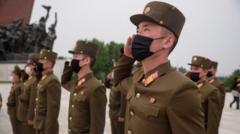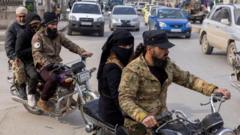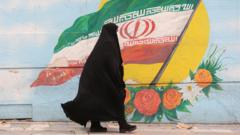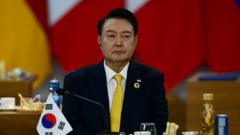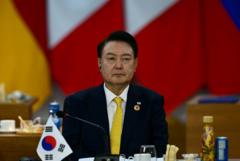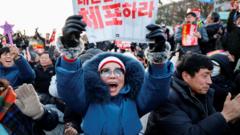The recent declaration of martial law in South Korea ignited a remarkable response from the younger generation, previously perceived as politically apathetic. Fueled by a stark reminder of the fragility of democracy, thousands took to the streets to manifest their discontent with the government's actions.
Young Koreans Rally for Democracy Amid South Korea's Martial Law

Young Koreans Rally for Democracy Amid South Korea's Martial Law
A new wave of political activism emerges among South Korean youth as fears of democracy at stake spark massive protests.
Lee Suyoon, a 20-year-old student, found herself thrust into the political storm following the alarming news of soldiers entering the National Assembly on December 3. Although she initially reacted with skepticism, believing that the prospect of military dictatorship was far-fetched, the rapid unfolding events on social media pushed her to reconsider her stance.
By the following Saturday, Ms. Lee mobilized friends and fellow students to protest outside the National Assembly, where an impeachment motion against President Yoon Suk Yeol was being debated. "The martial law declaration has forced me to realize that democracy is important," she emphasized, highlighting the sudden awakening of her generation's realization of how vulnerable democratic systems can be.
This spontaneous uprising marked a significant shift in political engagement among young South Koreans, who previously felt disconnected from governance issues. With videos of military clashes and lawmakers circulating widely, the call to action resonated deeply, energizing a segment of society long thought to be indifferent.
Experts suggest that the resurgence of political activism among youth could signal broader implications for South Korean politics. The challenge remains whether this temporary fervor transforms into a sustained movement for democratic engagement or fades as swiftly as it arose. As many students like Lee commit to ongoing activism, the potential for change in the political landscape looms large, a stark reminder of the ever-present need to nurture democracy.
By the following Saturday, Ms. Lee mobilized friends and fellow students to protest outside the National Assembly, where an impeachment motion against President Yoon Suk Yeol was being debated. "The martial law declaration has forced me to realize that democracy is important," she emphasized, highlighting the sudden awakening of her generation's realization of how vulnerable democratic systems can be.
This spontaneous uprising marked a significant shift in political engagement among young South Koreans, who previously felt disconnected from governance issues. With videos of military clashes and lawmakers circulating widely, the call to action resonated deeply, energizing a segment of society long thought to be indifferent.
Experts suggest that the resurgence of political activism among youth could signal broader implications for South Korean politics. The challenge remains whether this temporary fervor transforms into a sustained movement for democratic engagement or fades as swiftly as it arose. As many students like Lee commit to ongoing activism, the potential for change in the political landscape looms large, a stark reminder of the ever-present need to nurture democracy.




